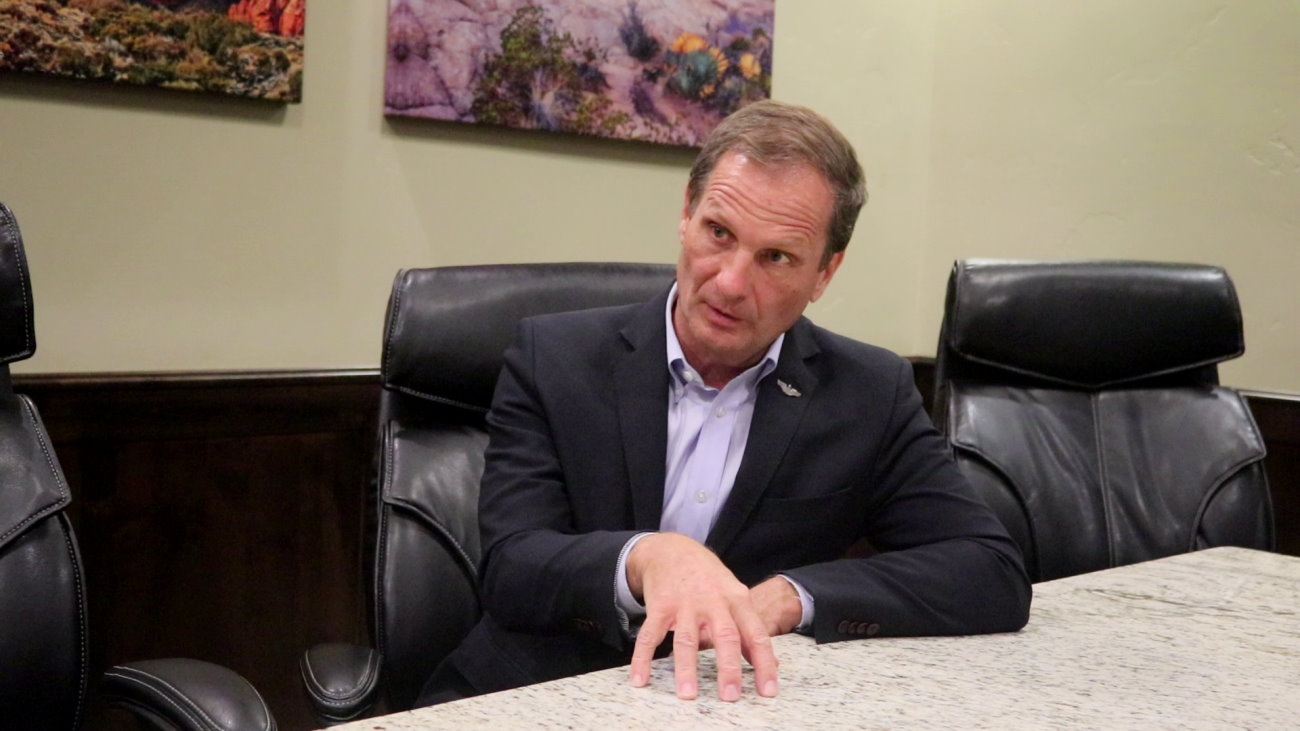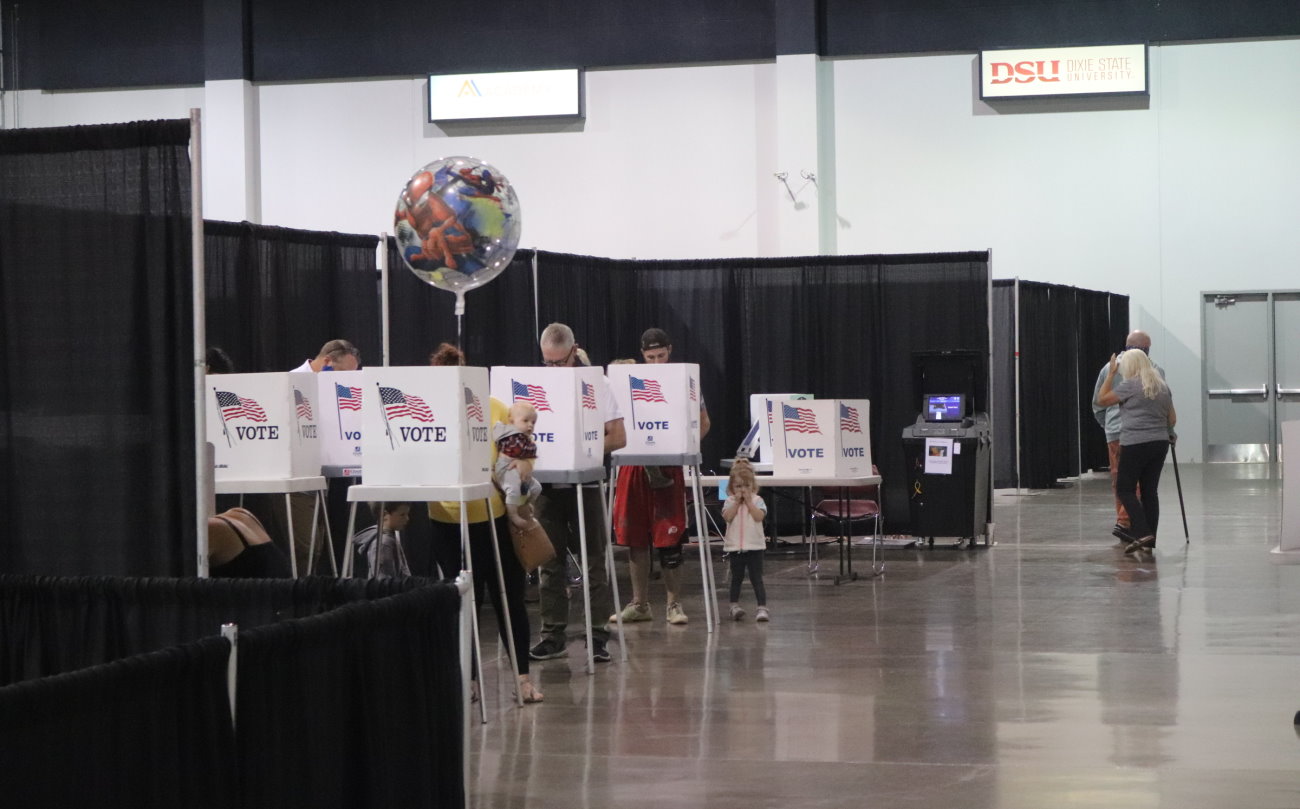ST. GEORGE — While visiting St. George last week, Republican Congressman Chris Stewart spoke with St. George News on his continued opposition to sweeping voting reform legislation being pushed by congressional and Senate Democrats.

The proposed For the People Act passed the U.S. House in March and is slated to be put to a vote in the Senate later this month.
Supporters of the legislation, also known as H.R.1 and S.1 in the House and Senate respectively, say it will expand voting rights, ban partisan gerrymandering and rein in dark money in elections, among other items in need of regulation and reform.
Under the act, the creation of congressional districts would be placed in the hands of an independent commission. Stewart said that such a commission wouldn’t be as answerable to the people as the current process, which goes through state legislatures. Supporters of the legislation also claim the bill will curb efforts by those state legislatures to restrict voting rights.
“It federalizes what is a state responsibility, and the Constitution on this is very, very clear,” Stewart said. “It says explicitly that elections will be regulated and determined by the state legislature. They are the ones who will manage elections within each state.”

If Utahns don’t like how members of the Legislature draw up the district, those legislators can be voted out of office, Stewart said, adding that individuals on an independent commission aren’t as likely to be beholden to the voters.
The proposed For the People Act would also standardize voting across the nation and no longer allow states to require voters to show a form of identification prior to voting, among other voting reforms that would be taken over at the federal level.
“The vast majority of Americans disagree with that. They know it’s a fair thing to do,” Stewart said. “If you’re able to vote, you should be able to prove who you are.”
In the area of campaign finance reform, Stewart argued that it will negatively impact the ability of candidates to collect campaign donations, using federal money – as in taxpayer money, Stewart said – to fund elections instead.
H.R. 1 aims create a voluntary small donor matching program for federal elections. Candidates participating in the program would be able to get public funds matched in a one-to-six ratio.

“Instead of me having to go to my friends and associates and say, ‘Hey, if you believe in me, if you believe in what I am doing, will you help me?’ and people give $5 or $10 – it takes that away and says the federal government is going to give money to the candidates,” Stewart said.
Advocates for the bill argue that claims made by Stewart and others about how federal money would be used under H.R. 1 are incorrect. According to Newsweek, the funds wouldn’t come from a broad range of taxpayers but rather a “surcharge on criminal and civil penalties, as well as settlements from corporations, corporate officers and, to a much lesser extent, individual tax code violators in upper-income brackets.”
Proponents say the legislation also seeks to undo the Citizens Untied ruling made by the Supreme Court which allows corporations, labor unions and other associations to donate as much money as they want to favored candidates. Political Action Committees and similar organizations would also be required to disclose who their donors are, among other proposed reforms.
“This is nothing but a power play to keep Washington D.C. Democrats in power, they hope forever,” Stewart said. “It’s malicious to the Constitution, and it’s something that we have to defeat.”
Senate Majority Leader Chuck Schumer, D-New York, previously said he plans to bring the For the People Act to a vote in the Senate the final week of June. However, the legislation’s future is in question due to Sen. Joe Manchin’s, D-West Virginia, announcement in an editorial he wrote that he will not support it.
Typically, such a bill would require 60 members of the Senate to pass, but there has been a move among Senate Democrats to bust the filibuster so the bill can pass with the razor-thin 51-vote majority the Democrats have with Vice President Kamala Harris.
Manchin has said the bill is too big, too broad and too partisan. He also does not support busting the filibuster. The proposed bill is over 800 pages long and has no Republican support in the Senate.
“The truth, I would argue, is that voting and election reform that is done in a partisan manner will all but ensure partisan divisions continue to deepen,” Manchin wrote. “With that in mind, some Democrats have again proposed eliminating the Senate filibuster rule in order to pass the For the People Act with only Democratic support. They’ve attempted to demonize the filibuster and conveniently ignore how it has been critical to protecting the rights of Democrats in the past.”
This article touches on only a handful of the points addressed in the For the People Act, which includes additional elements regarding election reform, campaign finance reform, election security, requirements for presidential and vice-presidential candidates regarding the disclosure of their income tax returns and supporting Washington, D.C. becoming a state.
Copyright St. George News, SaintGeorgeUtah.com LLC, 2021, all rights reserved.